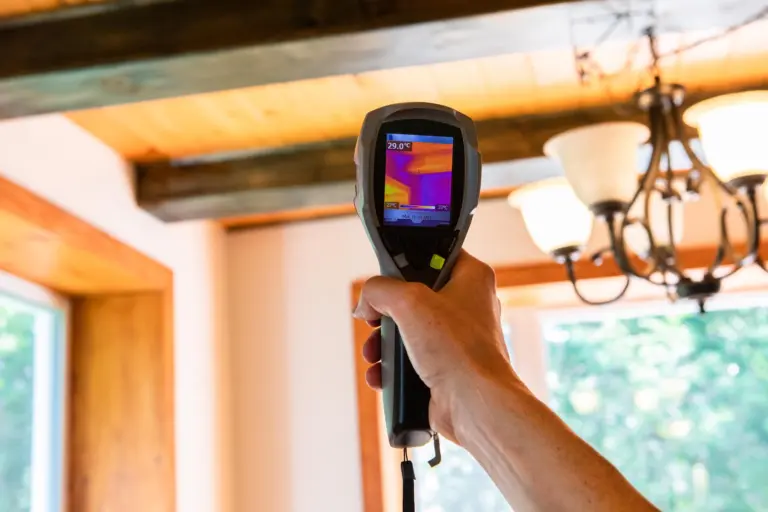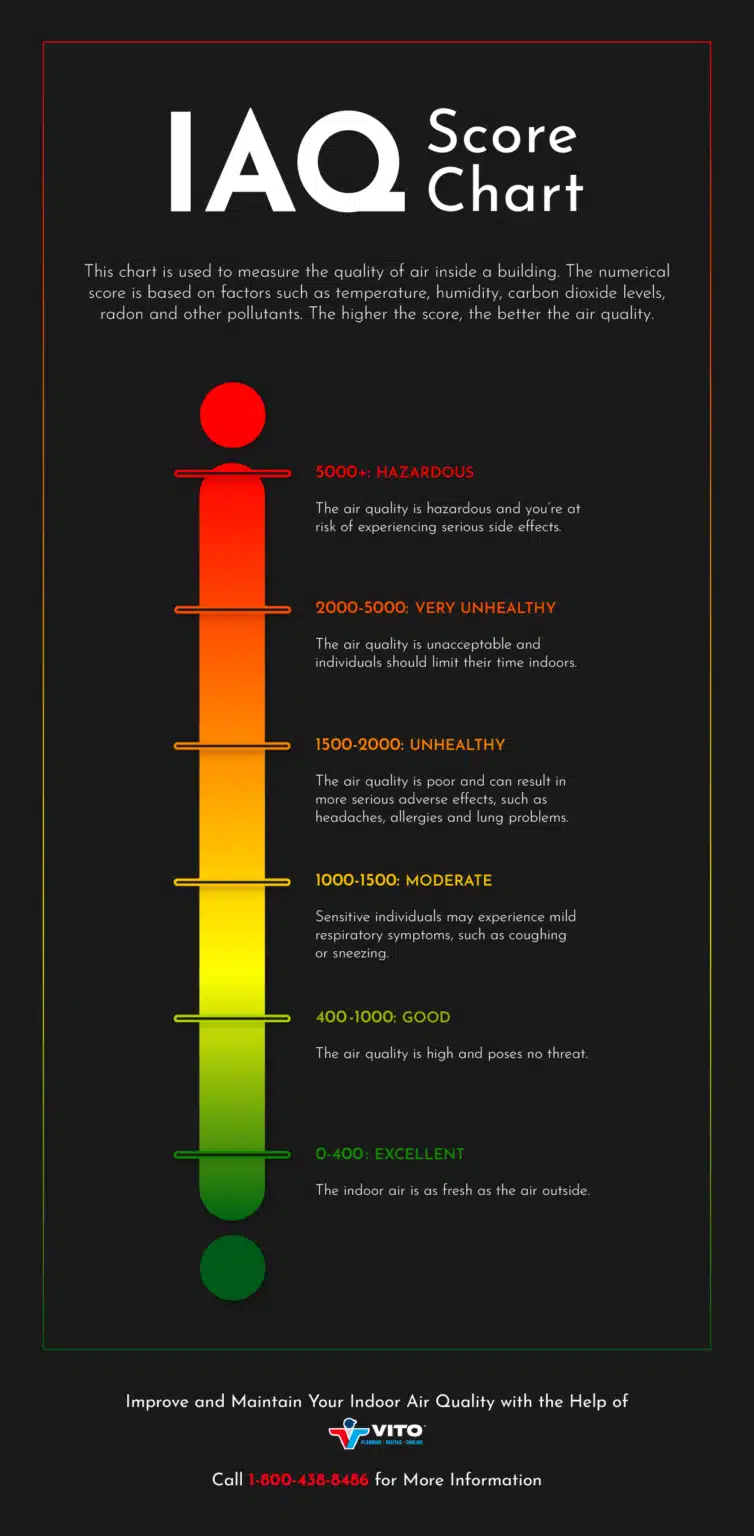
IAQ is short for indoor air quality–the air quality within buildings and structures as it relates to the health and comfort of occupants.
IAQ can be affected by gases, such as carbon monoxide, particulates, microbial contaminants (mold, bacteria) or anything else that can induce adverse health conditions.
Indoor air tends to be a lot more polluted than outside air, which can have an adverse effect on your health. It's not uncommon for people spending a lot of time indoors to develop various health issues, including persistent coughing, itchy eyes and headaches.
If you suspect indoor air quality is an issue in your Rockville home, don't fret. There are several things that can improve your home's IAQ and provide a safe environment for you and your loved ones.

HOW DOES POOR INDOOR AIR QUALITY IMPACT YOUR HEALTH?
Poor air quality can cause a variety of respiratory problems, such as asthma, allergies and other respiratory illnesses. It can also cause headaches, fatigue and eye irritation. People often attribute these symptoms to causes unrelated to home's air quality, such as a cold or seasonal allergies. However, if your symptoms persist for days or weeks on end, you may want to look into the quality of the air you breathe at home.
You may also want to pay close attention to how you feel away from home, such as when you go for a walk or go shopping. For instance, if you have a persistent dry cough that seems to subside when you're outside, it's possible indoor air quality may be the culprit.
WHAT ARE THE CAUSES OF POOR INDOOR AIR QUALITY?
There are many potential causes of poor indoor air quality in homes. Some of the most common causes include:
- Ventilation: Poor ventilation can lead to a buildup of pollutants in the air, such as dust, pollen, mold spores and other allergens.
- Contaminants from outside: Outdoor air pollution can enter your home through open windows and doors or through cracks in walls and foundations.
- Household products: Cleaning products, paints, solvents and other chemicals can release volatile organic compounds (VOCs) into the air.
- Mold and mildew: Moisture buildup in bathrooms, laundry rooms and basements can lead to mold growth, which can cause health problems for people with allergies or asthma.
- Radon gas: Radon is an odorless gas that is released from the ground and can accumulate in homes with poor ventilation.
WAYS TO IMPROVE INDOOR AIR QUALITY
Just like there are many potential reasons for poor indoor air quality, there are also many solutions to the problem. To ensure you're breathing quality air at home, you can implement a variety of remedies, including both DIY methods as well as professional solutions.
DIY:
- Change HVAC filters regularly: HVAC filters should be changed every one to three months during heavy use seasons to ensure the air in your home is clean and free of dust, pollen and other allergens.
- Use natural cleaning products: Natural cleaning products are less likely to release harmful chemicals into the air than traditional cleaning products.
- Open windows: Opening windows can help to circulate fresh air into your home and reduce the amount of pollutants in the air.
- Vacuum regularly: Vacuuming regularly (especially if you have carpet floors) can help to reduce dust and other allergens in your home.
- Plant indoor plants: Indoor plants can help filter out pollutants from the air in your home and add oxygen into the environment as well.
DIY methods may not always be enough to improve the air quality in your home. That's when it makes sense to explore more professional and proactive solutions.
Professional Solutions:
- Air filtration systems: As the name implies, an air filtration system removes particles, such as dust, pollen, mold spores and other allergens from the air before it's circulated back into rooms.
- Air purifiers: Anair purifier can be especially useful if you're looking to reduce allergens, dust, smoke, pet dander, mold spores and other airborne particles that may be causing health problems.
- Duct sealing: A compromised duct can be detrimental to your home's climate control. Having the joints and seams of your ductwork sealed can significantly improve your indoor air quality if duct leaks are the culprit.
- Duct cleaning: Having dust and debris removed from your air ducts can help improve your indoor air quality and reduce the risk of health problems.
IMPROVE YOUR INDOOR AIR AND QUALITY OF LIFE
Your home should be a place of rest, relaxation and rejuvenation, but if your indoor air is ridden with pollutants, your home may be the last place you'll want to be.
At Vito Services, we are committed to helping Rockville homeowners create a safe home environment by assessing your air quality and providing reliable solutions to improve it.
To learn more, call 1- 301-315-6100 or schedule an appointment online.








